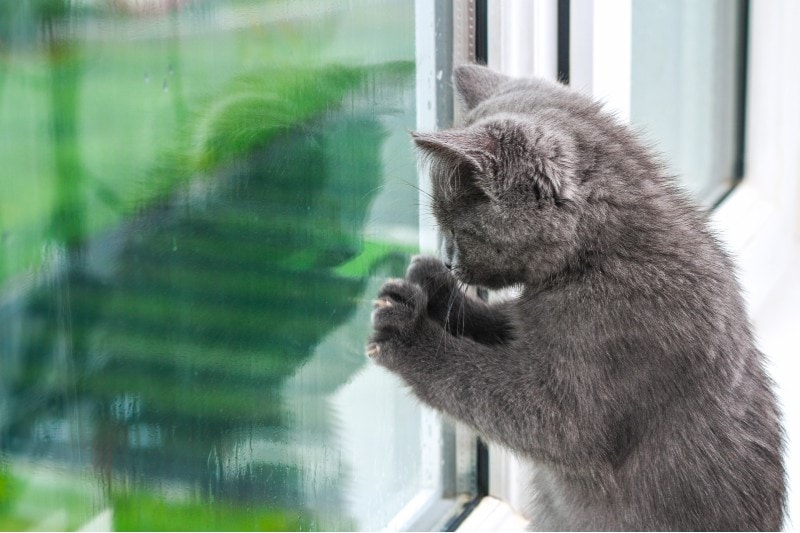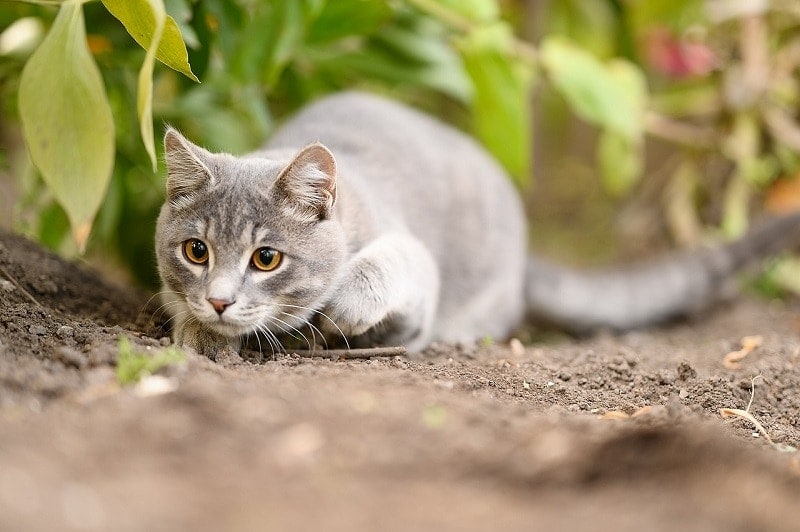Are Elephant Ears Poisonous to Cats? Vet-Reviewed Info

Updated on
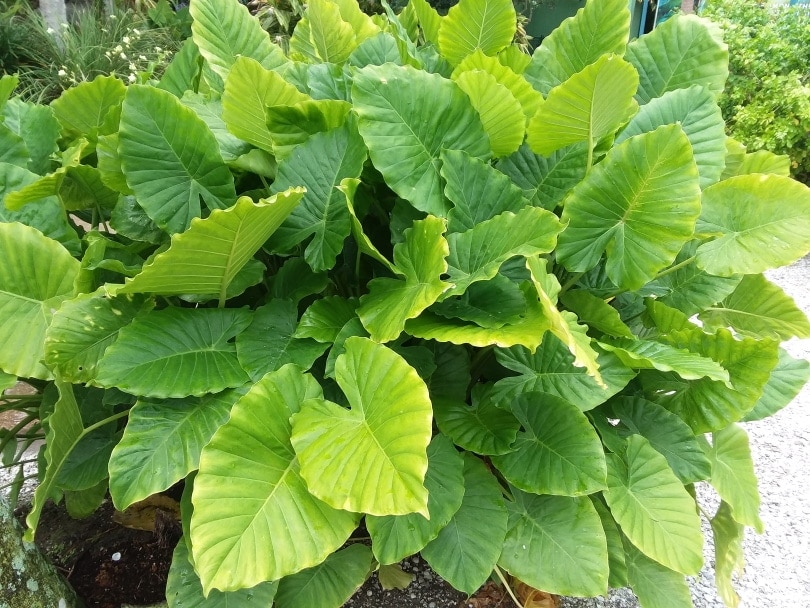
When we take our pets outside, it is easy to forget the dangers lurking in plain sight. One such threat is the Elephant Ear plant, or Xanthosoma, also known as the taro.1 It has large leaves that look like elephant ears. People often grow it in their gardens for the dramatic appearance of its huge red, green, or blue leaves. Unfortunately, Elephant Ear is poisonous to mammals, including cats.2
In this article, we cover everything that you need to know about Elephant Ear poisoning, including the causes, signs, treatment, and recovery. Afterward, you will be well prepared to not only keep your kitty safe but also know what to do if they get sick.
What Is Elephant Ear Poisoning?
Elephant’s Ear is the name for several different genera of plants, with Alocasia, Caladium, Colocasia, and Xanthosoma being among them. They all contain insoluble sharp raphide crystals called calcium oxalate that pierce the mouth and throat tissues when eaten. The airways can swell and there may be additional allergic reactions. Brushing up against an Elephant Ear plant can also irritate the skin and cause blisters.
Poisoning by Xanthosoma isn’t very common, as the plant is bitter, but it is highly irritant, so it’s important to know how to prevent and treat it.

What Are the Signs of Elephant Ear Poisoning?
If your cat eats Elephant Ear, the signs will begin to appear right away. Check out the list below for key clinical signs.
- Swollen tongue, eyes, or lips
- Vomiting
- Diarrhea
- Loss of appetite
- Drooling
- Foaming
- Pawing at the mouth and shaking head
- Difficulty swallowing
- Hoarse vocal sounds
- Difficulty breathing
- Kidney problems
What Are the Causes of Elephant Ear Poisoning?
Due to its impressive size and appearance, the Elephant Ear plant has become very popular with landscapers across the country. This poses a serious risk for outdoor cats and is something to be aware of if you let your cat outdoors for any reason.
Fortunately, cats don’t usually eat a lot of the plant due to the immediate irritation and burning in their mouths once they chew it. The sharp raphides are concentrated in the stems and leaves.
How to Diagnose Elephant Ear Poisoning
In the case that your cat does eat a large amount of elephant ear, treat it like a medical emergency, and immediately take them to the vet. Be sure to have your pet’s medical history available so the vet can diagnose them properly and not assume it’s a pre-existing condition. If possible, bring a piece of the plant that your cat ate with you to help the doctor make an accurate diagnosis.
Your cat will receive a thorough examination and will get immediate treatment to stabilize their vitals if necessary. Blood tests will be run, as well as a urinalysis to check the condition of the kidneys. The heart and lungs will also be checked.
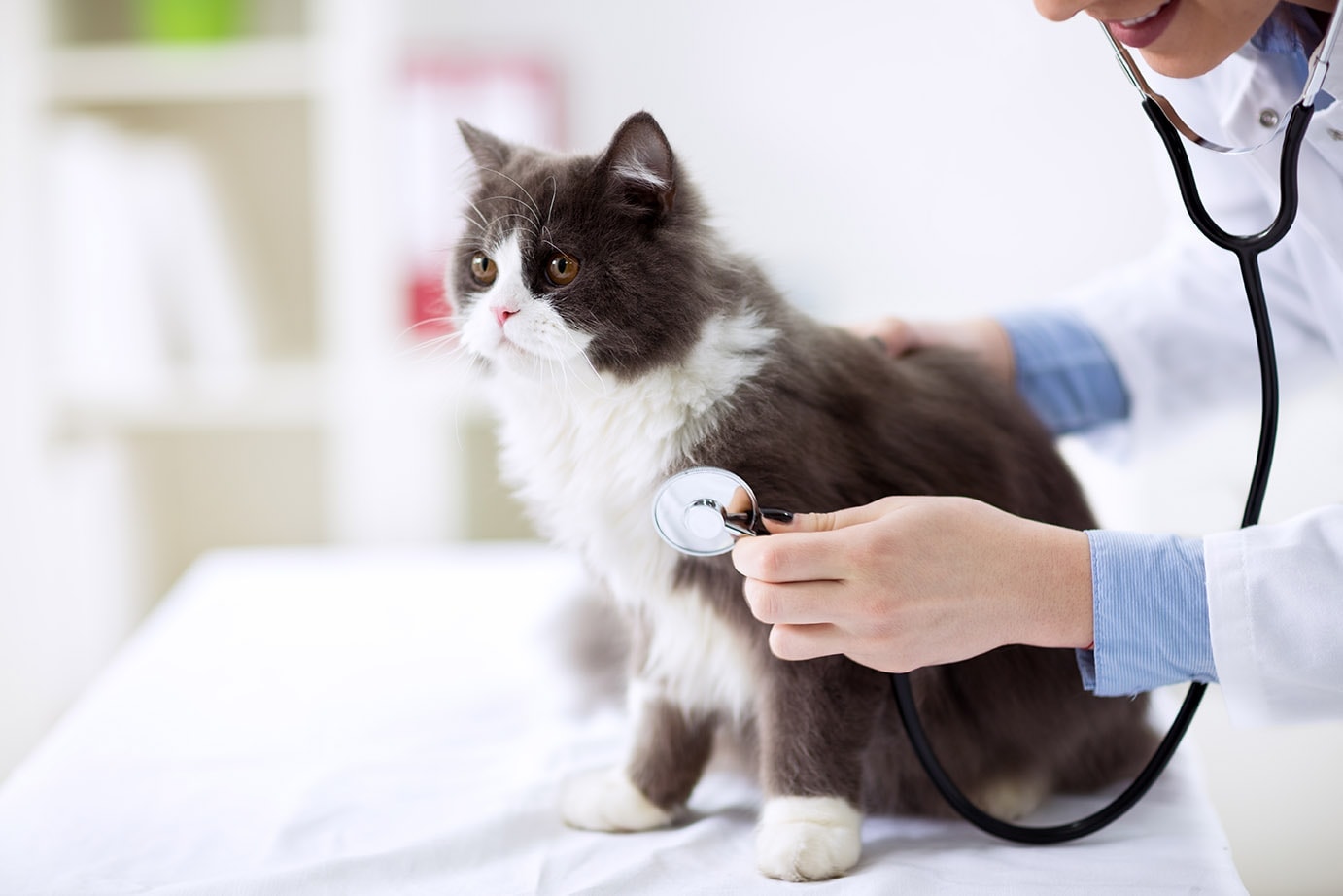
How to Treat Elephant Ear Poisoning
Although there is no antidote for Elephant Ear poisoning, the most successful treatment focuses on the signs and keeping your cat comfortable.
- Flush Exposed Areas: For contact with the eyes or mouth, flush the areas with water immediately to help cool the burning and irritation and remove the raphides. You can offer a small amount of milk or yogurt to help bind the oxalate crystals.
- Provide Supportive Care: After suffering from gastrointestinal problems, your cat can become dehydrated, so an IV may be necessary to replace critical fluids. It’s important to monitor their breathing and organ function during this time.
- Give Medications: Your vet may need to give medications for pain relief, to stop vomiting, to reduce throat swelling, and to protect the gastrointestinal tract.
Recovery From Elephant Ear Poisoning
The most serious signs of Elephant Ear poisoning usually manifest and pass within the first 24 hours. However, sickness can last for up to 2 weeks. The severity of your cat’s condition will depend on how much of the plant they ate, how the cat was affected, and any resulting kidney damage.
To prevent poisoning, many cat owners choose to not have Elephant Ear plants at all or to put them out of reach of their pets. Other people just keep their cats indoors to avoid the risk altogether.
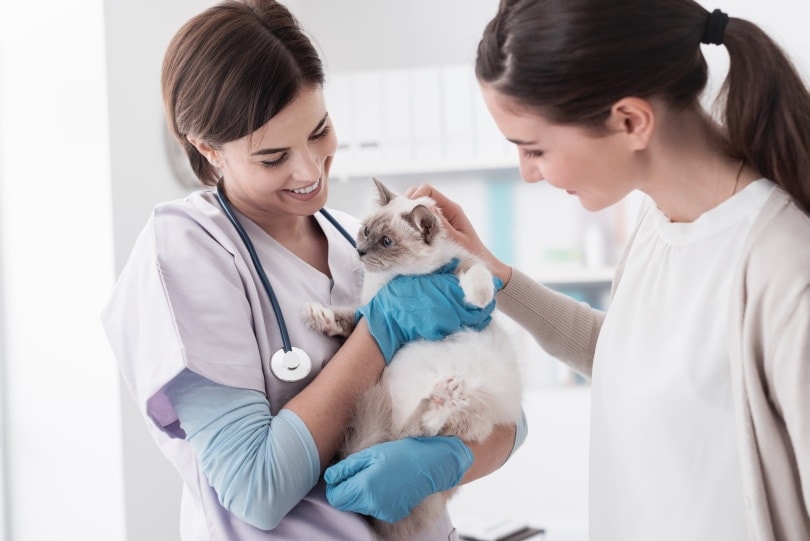
Conclusion
The Elephant Ear is a highly toxic plant that can cause your cat harm and distress. If you think your cat may have been poisoned, take them to the vet for an immediate exam and diagnosis after flushing any exposed areas. Your vet will diagnose and treat them as needed, and the worst should pass within the first day.
Fortunately, cat deaths from Elephant Ear poisoning are rare and can be avoided with preventative measures. You can keep your pet inside and make sure there are no such plants on your property. If you take your cat for walks, the Elephant Ear is recognizable, so you can easily give it a wide berth.
- Related Read: Is Jasmine Toxic to Cats?
Featured Image Credit: Caseybrian12, Shutterstock


